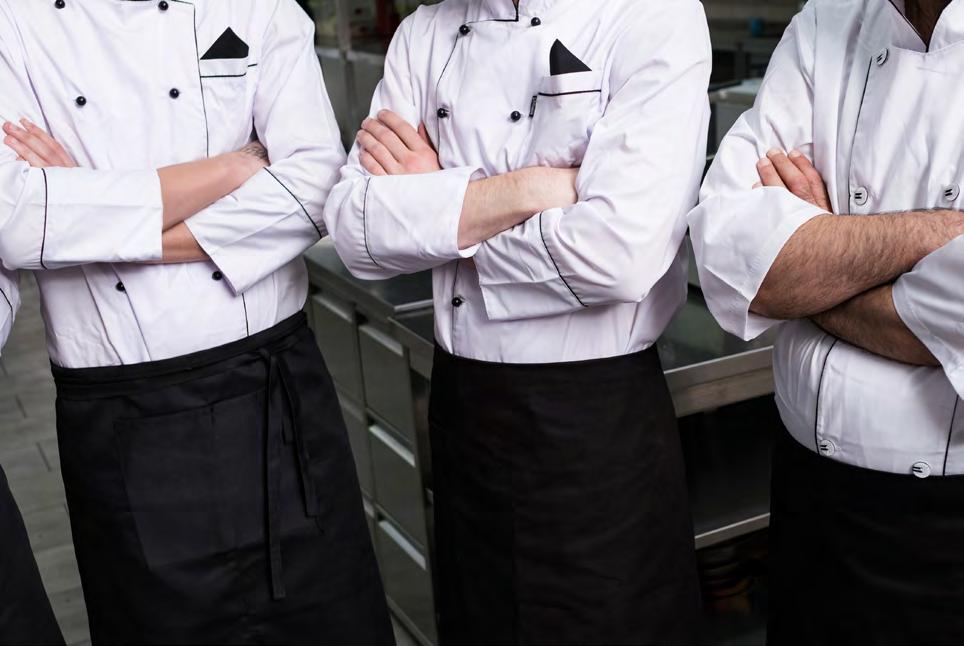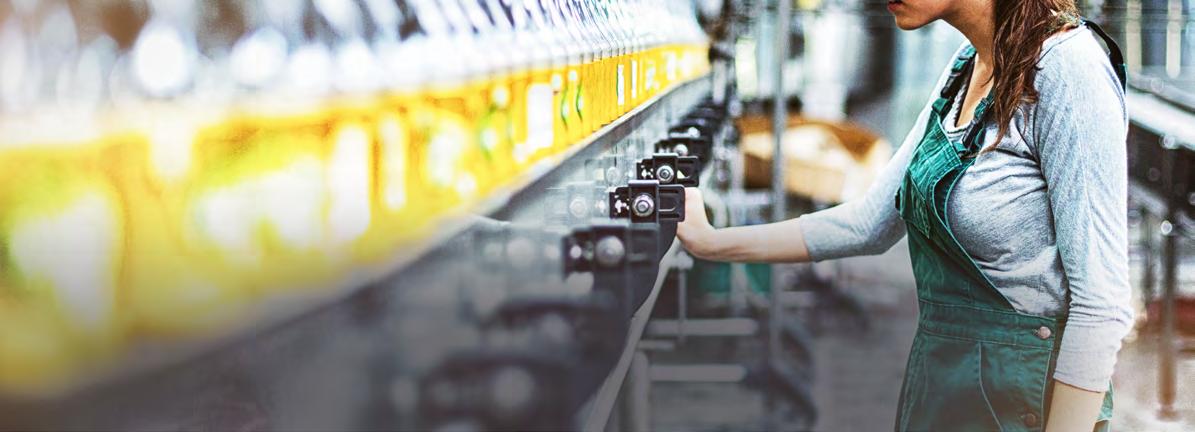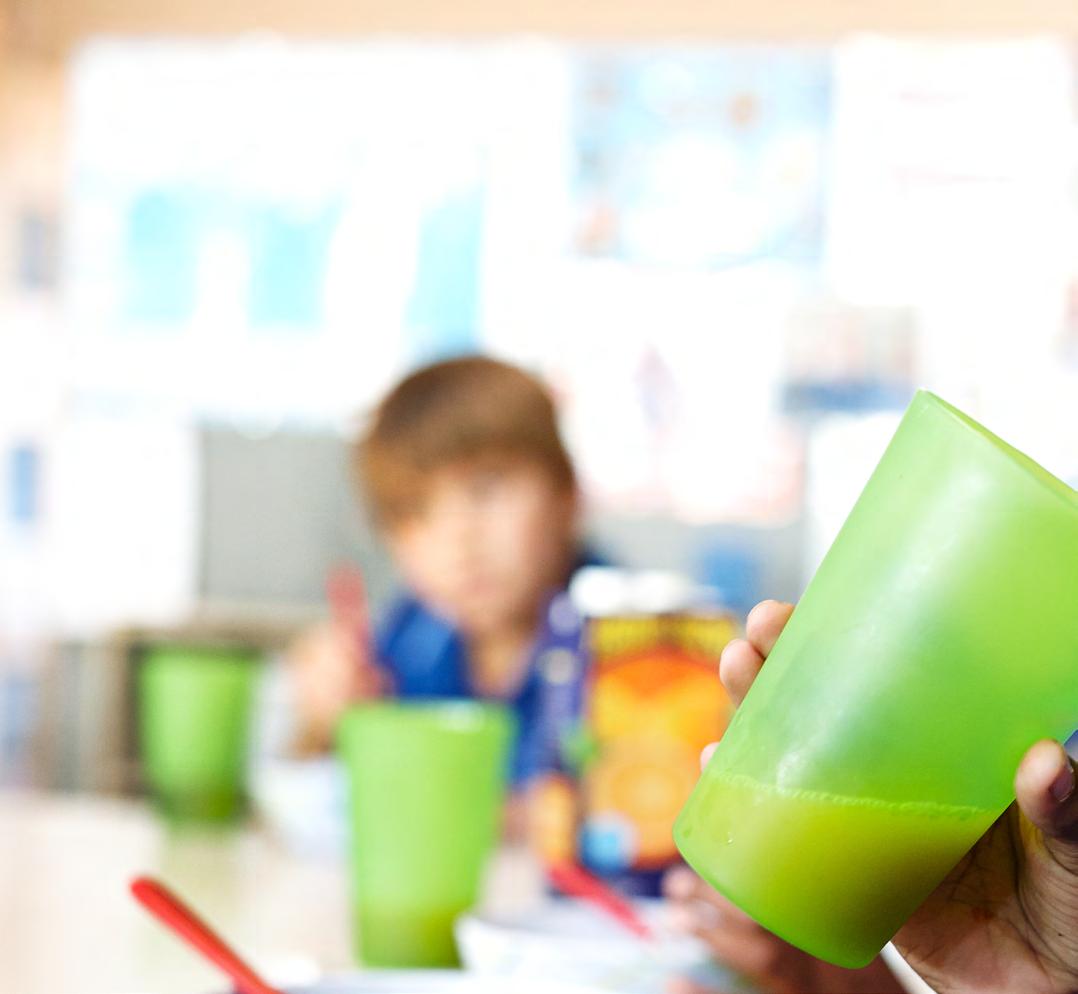
14 minute read
The Pulse
A new technology for food preservation
A new technology that preserves food products at subfreezing temperatures, while preventing the damage caused by ice crystal formation inside the product, could be a game-changer for the frozen food industry.
Isochoric freezing, originally developed by Boris Rubinsky at the University of California, Berkeley, preserves biological materials without the formation of ice crystals. The key to this method is the thermodynamic condition in which freezing occurs. A food product is fully immersed in an isotonic solution inside a closed chamber so the volume remains constant during freezing.
This freezing technique was examined as a preservation method in the frozen food industry when Mr Rubinsky started a collaboration with the US Department of Agriculture in 2017. The team found that freezing under certain isochoric conditions produced frozen foods that were superior to those preserved with conventional freezing techniques.
In addition, thermodynamic analyses have demonstrated that freezing in an isochoric system can reduce energy consumption by up to 70 per cent compared with a traditional freezing processes.
The global frozen food market - valued at more than $250 billion in
Aussies hungry for plant-based
A consumer research report looking at Australian consumers’ evolving relationship with meat has found that Australians are increasingly hungry for plant-based meat options.
The research, commissioned by Food Frontier, Australia and New Zealand’s independent think tank and industry advisor for plant-based and cultivated meat, and conducted by Colmar Brunton, found millions of Australians and Kiwis are reducing their meat intake.
Interest in plant-based alternatives is gaining considerable momentum with millions of Australians eating less Roberto Avena-Bustillos (left) and Cristina Bilbao-Sainz demonstrate the use of isochoric freezing chambers. Photo U.S. Department of Agriculture.
2015 - is projected to reach $282.5 billion by 2023. Many foods, especially those with delicate textures such as fruits and vegetables, are not suitable for traditional freezing methods because they deteriorate significantly during the freezing process.
The potential for isochoric freezing to maintain a food’s ‘fresh’ qualities when stored at subfreezing temperatures has so far been demonstrated with cherries, tomatoes and potatoes.
Other research into isochoric freezing has found it could also eliminate potentially harmful bacteria which are reduced during storage. This novel technology could therefore also find commercial applications in the sterilisation and preservation of beverages such as milk, tea, and juices.
meat. One in three are consciously limiting their meat consumption and an additional 10 per cent are entirely meat-free.
The report also found interest in eating less meat has grown in just the last year. The number of Australians defined as ‘flexitarian’ has grown by 20 per cent and 20 per cent of meat eaters have reduced their meat consumption.
Baby boomers are leading the meatreduction trend, whereas vegetarians and vegans are most likely to be millennials. Consistently, all generations nominated health, the environment and animal welfare as the most important reasons to reduce meat consumption.
Find the full report at foodfrontier. org/reports/
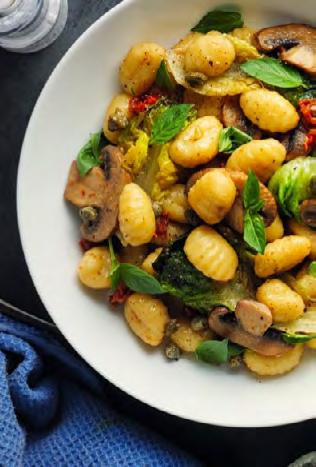
Aussie shoppers don’t like wasting ugly fruit
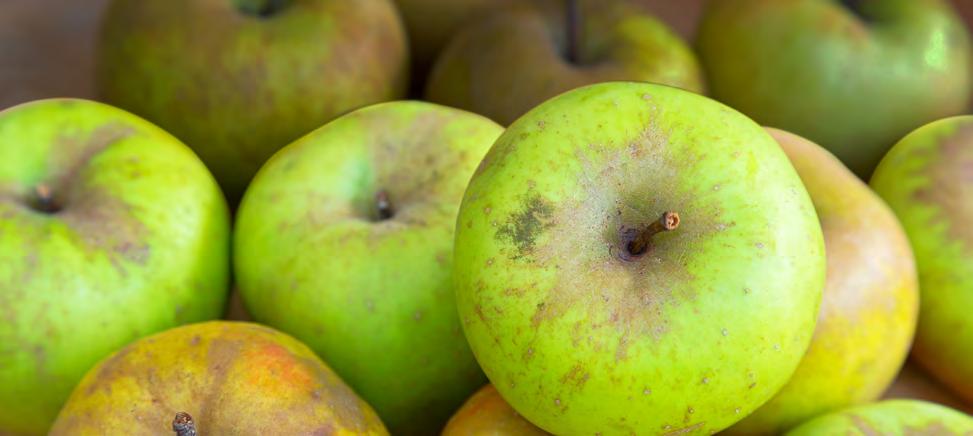
Data from SAI Global has revealed 50 per cent of Australian consumers dislike the overuse of plastic packaging and discard imperfect produce across the country’s supermarkets.
Around 53 per cent of survey respondents felt supermarkets used too much plastic packaging, although younger respondents appreciate its convenience. As many as 63 per cent of older respondents (aged over 65) wanted less prolific plastic packaging across all supermarkets, compared to 58 per cent of 55 to 64 year olds, 52 per cent of 35 to 54 year olds, 49 per cent of 25 to 34 year olds and 39 per A study by global communications consultancy Ketchum found generation Z and millennials are the most open to new food technologies. The good news for processors and manufacturers is that these younger consumers are also the most prone to want to talk about their food experiences. The key to success, therefore, lies in communication.
Ketchum’s managing director of food, agriculture and ingredient practice, Kim Essex, said the latest research found food technologies must be introduced to consumers using the right combination of scientific fact and emotion to unlock acceptance before foods made with cent of 18 to 24 year olds.
The survey found 39 per cent of Australian consumers also wanted supermarkets to accept imperfect produce, with 43 per cent of 18 to 34 year olds supporting the inclusion of imperfect produce in supermarkets.
Andrew Nash, food safety expert at SAI Global, said they agree any overuse of plastics is unfortunate.
“Plastic should be reduced where possible. However, unbeknownst to many shoppers, supermarkets use plastic for food safety purposes,” Mr Nash said.
“Plastic is effective in protecting high-risk foods, such as meat and technology are brought to market.
Earlier research by Ketchum found the trick with getting consumers to accept new food technologies is getting the messaging right. The path to trust involves using clear language, communicating the right information to the right audience, explaining technical and scientific terms and testing messages, rather than simply making assumptions.
The take-home message is that the younger generations are listening and engaging. The successful food companies of the future will be the ones that learn how to talk with these consumers about new innovations. dairy, from contamination through the millions of pathogens and microorganisms in the environment. Plastic, particularly if shrink-wrapped, also helps prevent food from oxidising and spoiling quickly, and it is a good protectant from chemicals in the atmosphere,” he said.
Coles will begin selling ‘ugly’ fruit and vegetables in the war against waste, with trials commencing in Victoria and South Australia. Woolworths has had a similar campaign, called ‘odd bunch’, running since 2014 which sells ‘ugly’ produce at reduced prices to combat
Young consumers for food technology
excessive food wastage.

Mars Wrigley celebrates 40 years
Mars Wrigley Australia has celebrated the 40th birthday of its chocolate factory in Ballarat, Victoria.
The Ballarat site opened in November 1979 and today is a regional technical hub for Mars Wrigley’s global brand development and innovation pipeline. Many of Mars Wrigley’s most celebrated innovations including Pods and M&M’s Honeycomb were invented in Ballarat.
In 2018, Mars invested $14 million into the Ballarat factory to maintain and upgrade its operations. This followed a $50 million investment in 2012 to build a new Maltesers production facility at the site, one of four Mars factories in the world that manufactures and exports the extremely popular Maltesters. Edith Cowan University researchers will get to the heart of which vegetables can best prevent cardiovascular disease thanks to a National Health and Medical Research grant worth almost $640,000.
Dr Lauren Blekkenhorst, a postdoctoral research fellow in ECU’s School of Medical and Health Sciences, has been awarded $639,725 over five years to identify

General manager of Mars Wrigley Australia, Mr Andrew Leakey, said the success of the Australian business is a testament to the hard work and passion of Mars Australia’s’ employees, referred to as ‘associates’ by Mars globally.
“Their commitment and our principles-led culture has allowed Mars Australia to continually be recognised as the number one FMCG which vegetables offer the most protection against heart attacks.
The research will build on Dr Blekkenhorst’s previous work, which found that eating vegetables high in nitrate such as spinach, arugula and lettuce, may reduce the risk of heart disease and stroke by up to 40 per cent.
“Heart disease claims the life of someone every 12 minutes in Australia, making it our leading manufacturer in the Australian ‘Great Place to Work’ rankings,” Mr Leakey said.
The Ballarat factory employees 350 associates and produces some of the world’s best-known confectionary, including Maltesers and M&M’s. Milky Way and Mars Bars were the first products to roll off the factory’s main lines, and today the factory produces
The best veggies for heart health
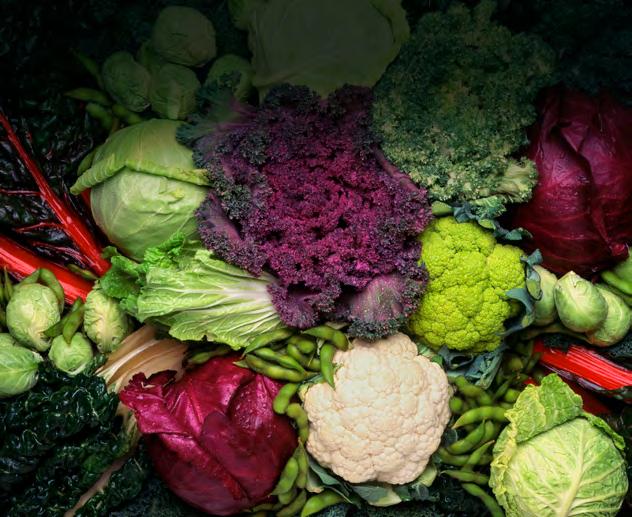
18 billion chocolates every year. cause of death,” Dr Blekkenhorst said.
“We know that eating a wide variety of vegetables can reduce your risk of heart disease. This grant will allow me to dig deeper and look at which specific vegetables provide the greatest reduction in risk.”
Dr Blekkenhorst will also explore what particular compounds in vegetables provide the protective effects against heart disease.
Dr Blekkenhorst’s NHMRC-funded research will focus on three types of vegetables. Cruciferous and allium - as there are particular sulphurcontaining compounds found almost exclusively in these vegetables which may help prevent heart disease - and leafy green vegetables - as they are a rich source of inorganic nitrate, which Dr Blekkenhorst’s previous research has shown may protect against heart disease.
The first part of Dr Blekkenhorst’s project will involve studying the diets of more than 500,000 people around the world to establish which types of vegetables are associated with a reduced risk of heart disease. They will then establish causal effects by using randomised controlled trials to show definitively which vegetables are the best for heart health.
Hilton Foods Australia opens $190m meat production facility
Hilton Foods Australia has unveiled a $280 million meat production facility in Heathwood, Queensland. The investment, which is underpinned by Hilton’s long-term national supply partnership with supermarket chain Woolworths, will see the facility on the outskirts of Brisbane produce fresh meat products for more than 450 Woolworths stores across Australia.
Hilton Foods Australia CEO Pat McEntee said the technology at the plant is set to drive a step change in consistency and quality of fresh red meat at its stores, as well as improve stock availability across more hours of trade for shoppers.
“We value our partnership with Woolworths and look forward to assisting in developing a faster and fresher supply of high-quality meat and value-added products,” said McEntee.

The Heathwood facility features Australia’s second-largest rooftop photovoltaic solar installation, which will provide around 50 per cent of the site’s energy needs.
The news follows Hilton Food Group and Woolworths extending their meat supply agreement in 2018.
FSANZ Regulatory Science Strategy 2019-2023
FSANZ has released its 2019- areas and sets out its plan to grow its 2023 regulatory science strategy, scientific and risk analysis capabilities, which aims to ensure Australia’s and its scientific evidence base and food system remains prepared to risk assessment methodologies, to respond to global challenges, trends underpin standards setting activities. and emerging risks. The strategy Through the new strategy FSANZ describes how FSANZ will continue aims to build stronger links with R+K_Ad_FoodAustralia 1/2019.qxp_Layout 1 14.03.19 12:23 Seite 1 to align its work to ministerial priority academia and industry, further

leverage resources through strategic partnerships and communicate its science to meet the needs of its stakeholders. The Strategy is available on the FSANZ website at foodstandards.gov.au/Publications/ RegulatoryScienceStrategy
Uncommon partnership launches innovative food company
Scientists, big business and entrepreneurs have formed an uncommon partnership to launch v2food, an Australian plant-based meat company. v2food, an Australian startup with potential global outreach, is the product of collaboration between CSIRO, Main Sequence Ventures (CSIRO’s innovation fund), Hungry Jack’s and founding CEO, ex-PepsiCo research director Nick Hazell. v2food aims to service the multibillion dollar global plant-based meat market. Following the first design workshop in August 2018 and company formation in January 2019, the company launched the Rebel Whopper by Hungry Jack’s with a plant-based meat patty by v2Food, in October 2019, a testament that rapid innovation is possible when scientists, big business and entrepreneurs collaborate to address a market-led opportunity.
The development of the company is an example of a new ‘venture science’ approach to innovation. The delivery of a new plant-based meat New government funding of $3.6 million will be used to establish a research training centre to develop selected native Australian crops, food and ingredients. The aim is to help create new opportunities in the food, tourism and health sectors in relation to bush tucker, while also showcasing native Australian cuisine to the world.
Research at the Australian Research Council (ARC) Training Centre for Uniquely Australian Foods will focus on seven promising native plant groups with the potential to become branded food products: native herbs and spices, native fruits, native nuts, kakadu plum, wattle seeds, native honey and native seaweed.
Federal Minister for Education Dan Tehan said the research will give Australians a better understanding of our unique native foods and their health benefits, leading to new L-R: Phil Morle (CSIRO Main Sequence Ventures), Nick Hazell (v2food), Prof Martin Cole (CSIRO), Dr Mary Ann Augustin (CSIRO) and Jack Cowin (Hungry Jack’s).
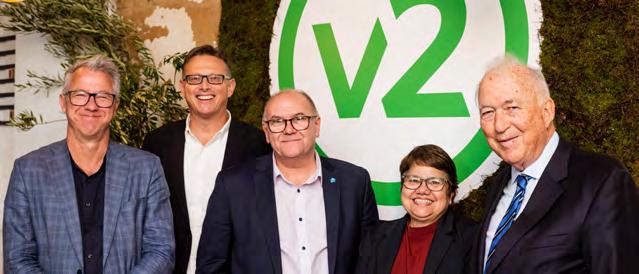
pattie at commercial scale within ten months of formation was possible because of collaboration, including with a large go-to-market partner - a crucial element that allowed rapid prototyping and focused the research effort on a consumer outcome - and injection of venture capital. The model uses design-led thinking to bring a transdisciplinary research team together around a market opportunity, with a focus on the opportunity and developing strategies that enable new products to fill a market gap.
now being used to develop the concept of a ‘venture kitchen’. This kitchen examines ingredient and food product development based on first principles in science to develop nutrient delivery platforms to feed the world sustainably and provide culturally acceptable diets for various populations.
The uncommon partnership, grounded in sound science and scaled through joining with corporations, is the future of new food companies to operate on a global scale.
ARC training centre for uniquely Australian foods
The venture science model is products, new uses, new business opportunities and new jobs.
“The training centre will equip early career researchers with skills in sensory, nutritional and toxicological studies,’’ he said.
Member for Groom John McVeigh, who launched the centre, said it will also have a heavy focus on indigenous participation.
“The centre will have Indigenous partner organisations and an Indigenous governance group to help create sustainable business models and to oversee how we apply traditional knowledge to branded products,” Dr McVeigh said.
Expected outcomes include technical information to support branding and market development, best practice development in social factors and legal arrangements for benefit sharing, and a cohort of trained and industry-ready
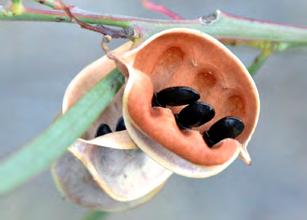
researchers who can lead the native foods industry forward.
The University of Queensland will administer the training centre in collaboration with five participating organisations across two countries that will contribute a total of $5.8 million in cash and in-kind support.
Participating organisations include: Australian Native Food and Botanicals, The trustee for Kindred Spirits Foundation, Karen Shelldon Catering, Beeinventive Pty Ltd and Venus Shell Systems Pty Ltd.
The next generation of agricultural crop s
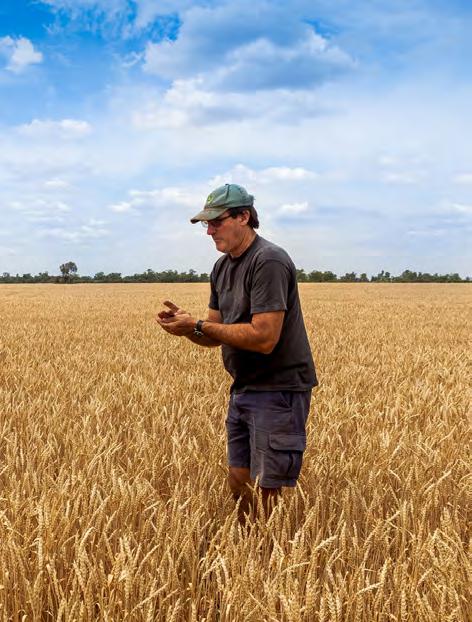
A new major research centre to be based at the University of Queensland will identify the next generation of agricultural crops that can withstand the effects of climate change and increase food security. Government funding of $35 million will establish the Australian Research Council (ARC) Centre of Excellence for Plant Success in Nature and Agriculture.
UQ vice-chancellor and president, Professor Peter Høj, said the centre will deliver innovative and world-leading research to improve crop resilience and boost yield which will help provide solutions to the critical issues of climate change and food security.
“The ARC Centres of Excellence scheme funds highly innovative and transformational research and this is the ninth Centre of Excellence established at UQ, which is an outstanding achievement,” Professor Høj said.
Director of the new centre, University of Queensland’s Professor Christine Beveridge, said around two-thirds of the world-wide human calorie intake comes from just three plant sources – wheat, rice and corn, and therefore future-proofing these crops against diverse climates including drought, and expanding gains in diverse plants is a must in order to improve food security for the projected 25 per cent increase in world population over the next 30 years.
The Centre will lead a global research network to translate novel genetic discoveries into on-farm crop productivity.
The University of Queensland will collaborate with four Australian universities and CSIRO, as well as 12 other academic and industry partner organisations from Australia, Europe, Asia, USA and Canada.
ISO 9001:2015 LIC 10372 SAI Global
Do you need to strengthen your sanitation and hygiene monitoring programs? novaLUM II® ATP detection system. IM0216 Quick Swab Insertion
No lids or latches USB/Wifi Faster data transfer
Rechargeable / Replaceable Battery
9 hour run-time
Touch Screen Extremely easy
Ergonomic Design
A durable molded casing allows for fast texting-like operation
High Resolution Display Backlit, sunlight-readable
Temperature Probe/ Battery Recharge Port
Waterproof
Together with CHARM’s Pocketswabs®, the novaLUM II ATP testing solution provides results in seconds, without the need for a laboratory, saving you time, money and provides confidence that your end product is safe and contamination free.
Contact us today for further information. www.rowe.com.au
Stirring and Mixing
New South Wales & ACT
Ph: (02) 9603 1205 rowensw@rowe.com.au
Queensland
Ph: (07) 3376 9411 roweqld@rowe.com.au
South Australia & NT
Ph: (08) 8186 0523 rowesa@rowe.com.au
Victoria & Tasmania
Ph: (03) 9701 7077 rowevic@rowe.com.au
Western Australia
Ph: (08) 9302 1911 rowewa@rowe.com.au
REF:101 x/marketing/advertising/AIFST/101-AIFST.NOV 2019

